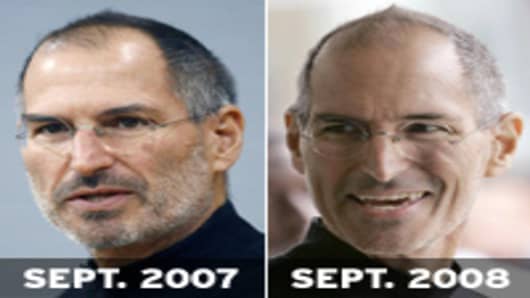By now you know the news, that Apple CEO Steve Jobs is admitting that his health issues have not only become a serious distraction for him, his family and the Apple community, but they've also become more "complex" than Mr. Jobs had originally thought.
He'll take himself out of the day-to-day limelight of the company for the next six months, but not relinquish his role as CEO. Day-to-day management will now go to Chief Operating Officer Tim Cook, who assumed the same responsibilities when Jobs underwent surgery for pancreatic cancer back in 2004.
There will be myriad questions as to how Apple has handled this issue from the start; beginning with Jobs' gaunt appearance in public and the shroud of secrecy over all things health-related when it came to Jobs; there will be questions about how Jobs has teased the media, investors and the Apple community with passing references to his blood pressure, and citing the famous exaggerated death quote from Mark Twain after a news organization mistakenly ran his obituary. But the biggest question I have centers very much on the present.
- Get After-Hour Quotes for Apple
Over these last several months, I have reported extensively on the Steve Jobs health issues: not how sick he was, because how could I possibly know without having access to his medical charts; but instead about Apple's fiduciary responsibility in releasing material news about its CEO and his ability to run the company. The threshold is quite simple: either he can run the company or he can't. If he's dying, but still running the show, technically, Apple didn't have to share any private details about his health. Legally, the company was solid. Ethically, morally, maybe not so much. But such was the tack Apple took.


